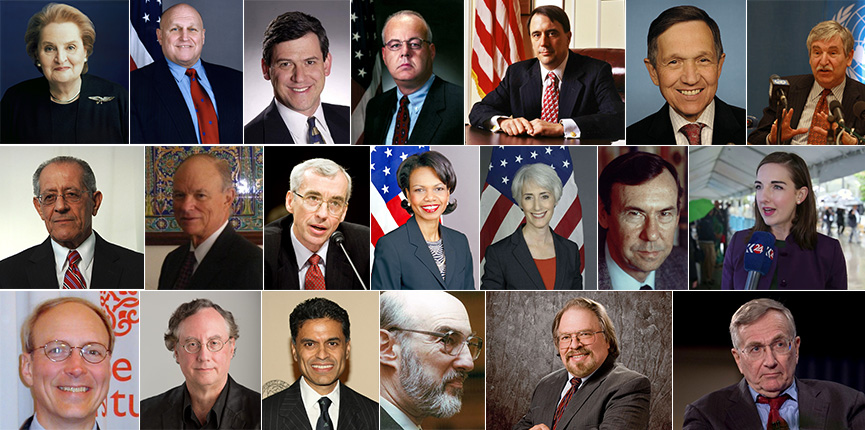
Among the many indicators of misdirection in the Trump administration’s policy toward Iran, one of the clearest is the fondness for the cult-cum-terrorist group known as the Mujahedin-e Khalq, or MEK. The national security advisor, John Bolton, and Donald Trump’s attorney, Rudy Giuliani, are among the group’s most prominent cheerleaders, having been featured speakers at its rallies in exchange for tens of thousands of dollars in fees.
Just in February, Giuliani told a pro-MEK rally in Warsaw, Poland, on the sidelines of a US-organized Middle East conference that Iran’s leaders are “assassins” and “murderers” who should be overthrown and then replaced by Rajavi.
For years, the group was designated a terrorist organization by the U.S. State Department. But after an aggressive and well-funded lobbying campaign supported by a bipartisan cast of high-profile former public officials, then-Secretary of State Hillary Clinton announced in September 2012 that the group would be removed from the State Department’s list of foreign terrorist organizations.
However, in the State Department’s briefing on delisting of the MeK, a senior state department official asserts that the Department does not overlook or forget the MEK’s past acts of terrorism, including its involvement in the killing of U.S. citizens in Iran in the 1970s and an attack on U.S. soil in 1992. He also pointed out that The Department has “serious concerns” about the MEK as an organization, particularly with regard to allegations of abuse committed against its own members.
In an article published in Politico Magazine on December 13, 2016, Daniel Benjamin, the Coordinator for Counterterrorism at the State Department between 2009-2012, asserts that when removing the MeK from the State Department’s Foreign Terrorism Organization (FTO) List, the department was aware of the terrorist activities that the group had committed in the past:
In an article published in Politico Magazine on December 13, 2016, Daniel Benjamin, the Coordinator for Counterterrorism at the State Department between 2009-2012, asserts that when removing the MeK from the State Department’s Foreign Terrorism Organization (FTO) List, the department was aware of the terrorist activities that the group had committed in the past:
"For decades, and based on U.S. intelligence, the United States government has blamed the MEK for killing three U.S. Army colonels and three U.S. contractors, bombing the facilities of numerous U.S. companies and killing innocent Iranians. Multiple administrations have rejected efforts by the MEK and its surrogates to claim that any bad acts were the result of what Torricelli calls “a Marxist group” that briefly ran the MEK while other leaders, who later rejected this cabal, were in prison."
In the same article, Benjamin refers to the Assistant Secretary of State Robert Pelletreau’s written response to a subcommittee question in 1992 about the MeK, in which he had pointed out that the US. Department of State does not deal with the MeK because of “the organization’s past use of terrorism, its continuing advocacy of violence, and a fundamental contradiction between its policy and our own.”
In the following, we will take a look at the positions of several authorities within the United States’ government, as well as prominent academics and journalists who, aware of the terrorist nature of the Mek, had warned that any support for such a violent cult, will cause irreparable damages for the country.
